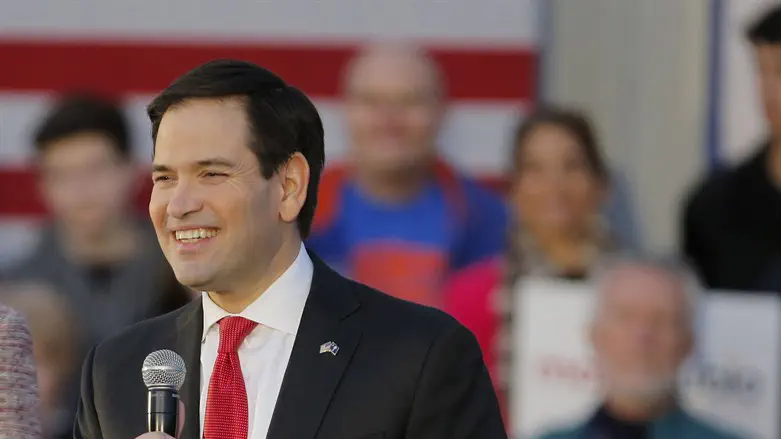
US Secretary of State Marco Rubio on Thursday gave an extensive interview to journalist Megyn Kelly, discussing the ceasefire and hostage release deal in Gaza, among other topics.
Asked whether he expects some of the American hostages to be released in the first phase of the deal, Rubio replied, “I expect we will, because that's the agreement that was made”.
He then stressed that “the core problem here remains and that is ultimately, as long as there is an entity like Hamas, whose expressed purpose is the destruction of the Jewish state, who is willing to commit horrifying atrocities against civilians, against teenage girls at a concert, and do the things that they've done and take hostage for a year and a half babies and elderly, and murder and all the things that they did - that's a threat to Israel's national security. What country in the world can be expected to live alongside an enemy armed, capable and willing of committing horrifying atrocities?”
“So I think that the ceasefire is important because it brought an end to some of the destruction and certainly allowed hostages to be freed at an extraordinary cost. I mean, we're talking about a ratio of one to, you know, you get a teenage hostage in exchange for 250 killers, Hamas killers that are released from prisons, so just think about how unfair that trade is,” Rubio added. “But it tells you how much, you know, we value life compared to what the other side, the Hamas animals, view this.”
Rubio opined that “the real challenge here is going to be what happens when the ceasefire period expires. Who's going to govern Gaza? Who's going to rebuild Gaza? Who's going to be in charge of Gaza? Because if the people who are in charge of Gaza are the same guys that created October 7th, then we still have the same problem.”
“The good news in the region is in Lebanon. We have a government that hopefully will become more powerful than Hezbollah in the Lebanese government, and there's a ceasefire that was extended there that ultimately will lead to that. In Syria, a group has taken over. These are not guys that would necessarily pass an FBI background check, per se…but if there's an opportunity in Syria, if there is an opportunity in Syria to create a more stable place than what we've had historically, especially under Assad, where Iran and Russia dominated and where ISIS operated with impunity, we need to pursue that opportunity and see where that leads.”
“And if you have a region in which you have a more stable Syria, a more stable Lebanon, where Hezbollah is not able to do the things it does on behalf of Iran, a weakened Iran, who's now lost all of these proxies, it now opens the door to things like a deal between Saudi Arabia and Israel, which would change the dynamic to the region,” Rubio continued, “and then ultimately, not make easy, but make easier resolving some of these challenges that we face with the Palestinian question, and in particular with the Gaza question.”
“So there's a lot of work to be done there. None of it is certain. All of it is hard, but real opportunities that we couldn't have even imagined 90 days ago,” he said.
